In 2005, when Bhagwati Yadav from Madhya Pradesh’s Panna district was told that she could start her own business by depositing Rs 10 every week in a government scheme, she laughed it off. ‘How can a business that requires huge investments demand so little?’ — the 60-year-old wondered. The scheme encouraged rural women to generate livelihoods. Besides the minimal deposit amount, she was asked to attend classes to up her entrepreneurial skills.
However, the real reasons behind mocking the opportunity were her deep-rooted fear and insecurities. She was a school dropout who never had a job, let alone have any knowledge of running a venture.
With encouragement and support from her husband, Dashrat, and her five daughters, Bhagwati, a resident of Dhalaan Chowki, took the leap of faith.
Fast forward to 2021, Bhagwati’s efforts, business acumen and the fine art of making murabba (marmalade) have made her tiny village famous for amla (gooseberry) murabba across the globe. Filled with confidence and passion to make every part of the country taste her delicious dish, Bhagwati is an example for hundreds of rural women.
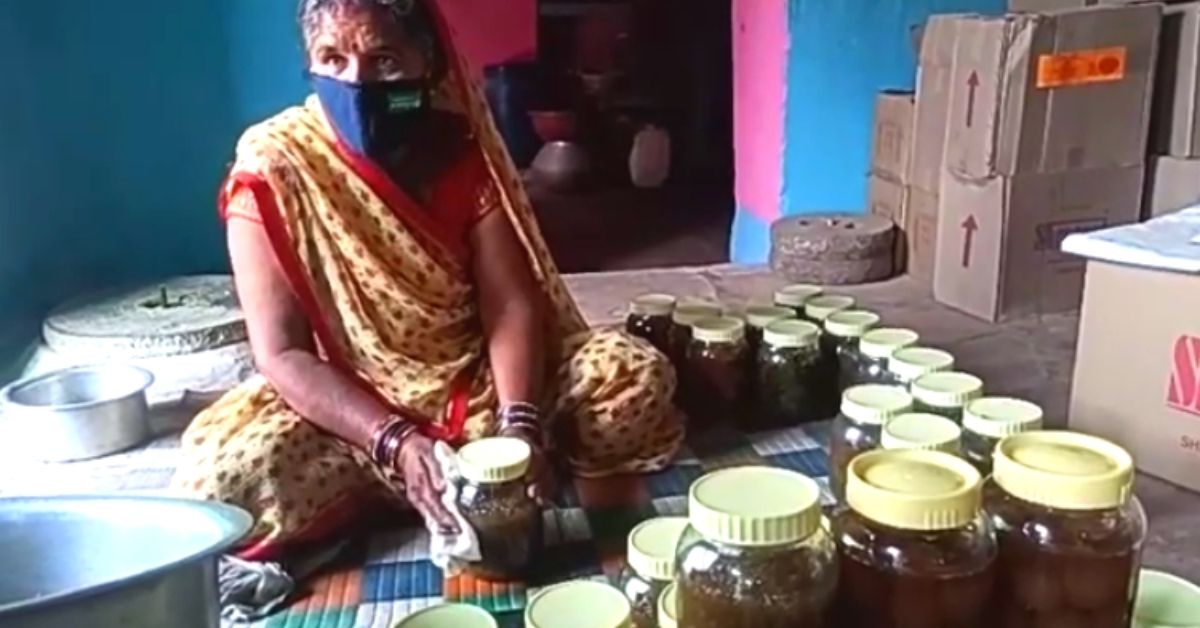
Through her, you learn that given the right access to technical guidance and financial services, it is possible to strengthen the economic role of women.
The Better India speaks to Bhagwati and Dasrat who have scaled their operations, especially during the lockdown.
Daily Wager to An Entrepreneur
Bhagwati’s destiny was no different from other girls in her community who were married off as soon as they reached the legal age. In absence of educational opportunities, developing culinary skills were a focus. Despite the limited means and poverty, Bhagwati’s mother managed to teach her a plethora of dishes.
“I never imagined something that is considered as a ‘wife’s duty’ could be translated into a profitable venture. When I was asked to choose a product or service, making murabba was the first choice. Besides knowing the recipe, I loved the sweet and tangy dish. Finalising a dish was not as hard as undergoing entrepreneurial skills training workshops. The only experience I had was working as a labourer on construction sites,” recounts Bhagwati.
As part of the scheme, she joined a Self-Help Group, ‘Maa Durga’, and underwent training for a couple of months before launching her business. Meanwhile, Dasrat continued working as a daily wage labourer outside Panna to support her family.
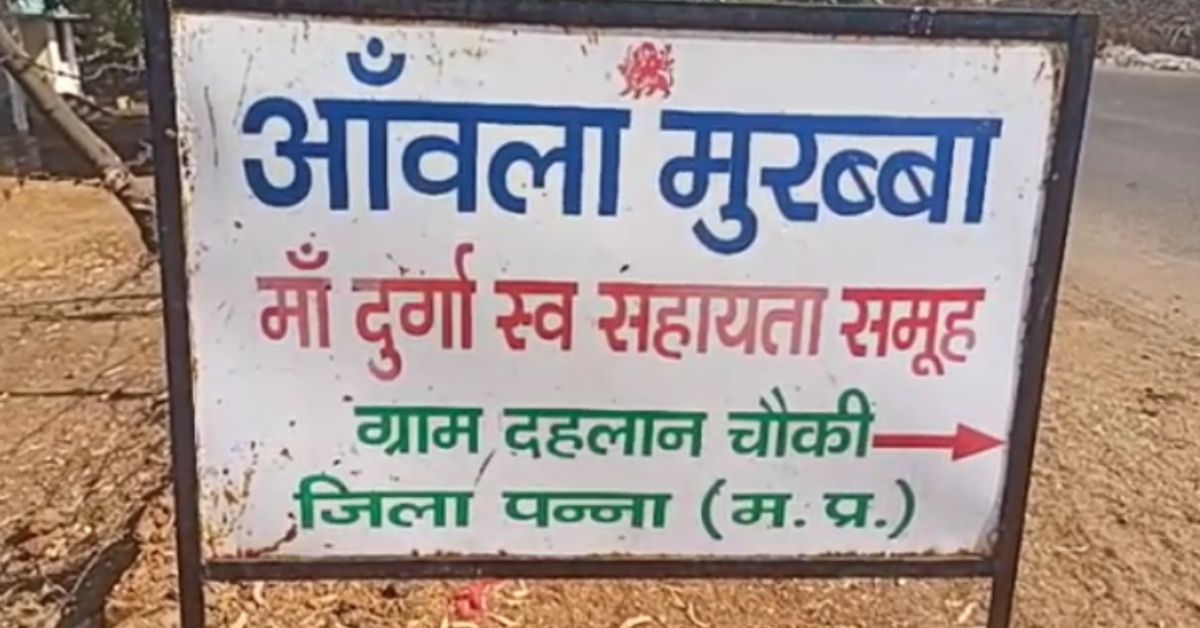
Bhagwati shed her inhibitions and efficiently grasped concepts like packaging, hygiene, bargaining methods, how to deal with customers and dealers and more.
For the first time ever, Bhagwati got a chance to visit a bank and open a savings account in her name, “Honestly, it was overwhelming to realise I will have savings. All our lives we have lived hand-to-mouth, whatever we earned, it was spent on the same day. I took an interest-free loan of Rs 3,00,000 from the SHG to set up the business. I was terrified but excited to see so much money.”
To ensure Bhagwati made mouth-watering murabba, she experimented with several batches before finalising the perfect recipe.
“My daughters and I were her guinea pigs. One batch of murabba takes at least three days to prepare, and Bhagwati was at it for months. I had never seen her so focussed and dedicated. It inspired me to join her business and assist her,” says Dashrat.
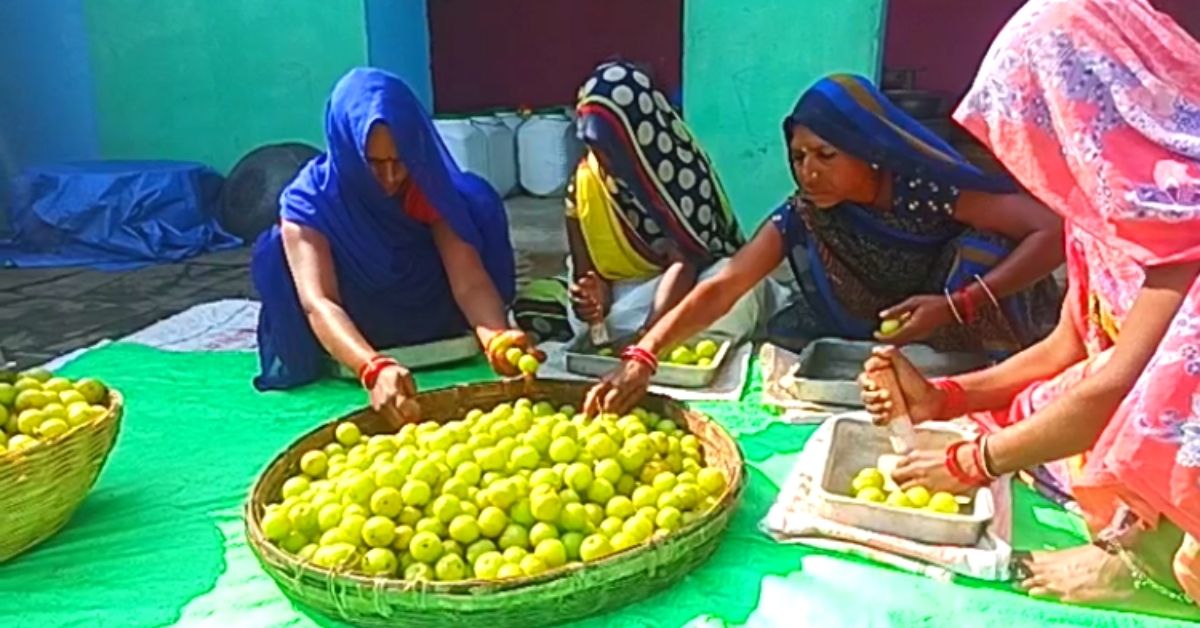
She was glad that the handholding from the SHG was extended to helping her with sales as well. They set up a stall on the Panna-Ajaygarh route to sell the food items prepared by rural women like Bhagwati. Several domestic and international tourists make a stop on the route to rest or eat before heading to the Panna Tiger Reserve.
Besides, Panna’s amla and its value-added products are included under the state government’s ‘One District, One Product’ scheme. Through that, Dasrat got a chance to sell the special murabba in exhibitions across Madhya Pradesh and India.
Dasrat and Bhagwati also struck deals with grocery stores across Panna. At a commission of Rs 20, the dealers agreed to sell her murabba.
“I didn’t know I had it in me to make tough decisions like deciding the prices, bargaining for a profitable deal and managing money. When our earnings increased, I decided how much to save and invest. I was tasting freedom,” says Bhagwati.
Carving a ‘Delicious’ Path For Others
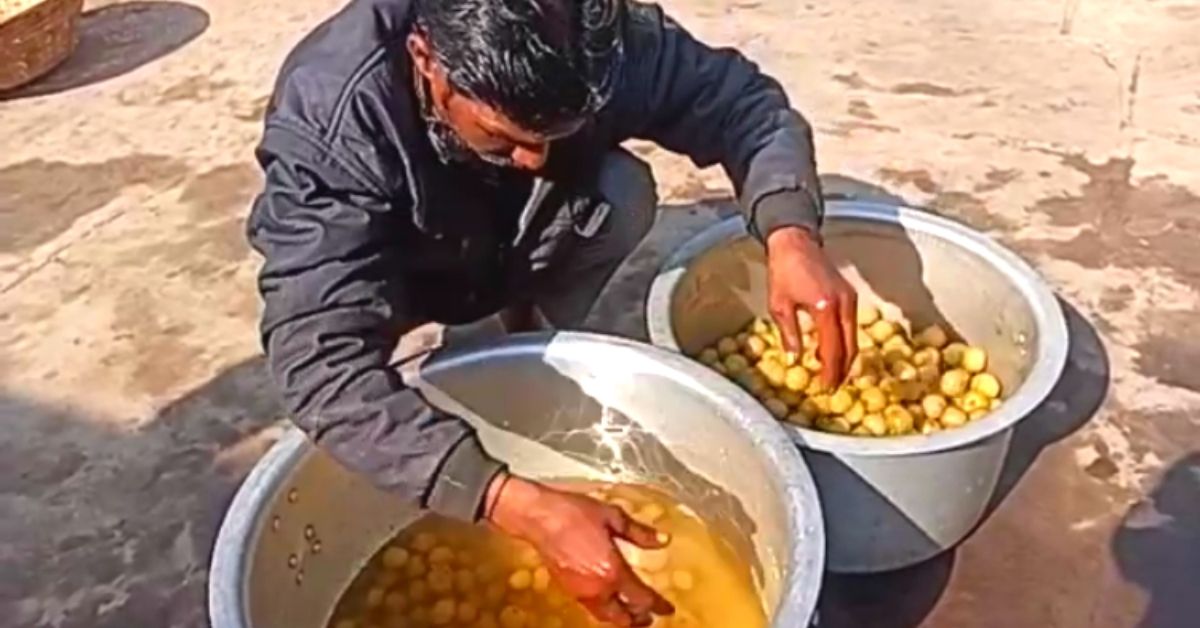
There are two sources from where women in Panna get amla. They either pluck it from the jungle or source it from farmers’ orchards, and Bhagwati says that amla grown by farmers is of a better quality and it also helps them sell their produce locally.
All her ingredients are purchased locally and Bhagwati is very particular about using only fresh produce. That is why she prepares murabba only during the amla season — between October and May.
Over the years, Bhagwati’s operations have doubled and she has even hired 10 women to help her meet the demand. “Earlier we were selling 10 quintals per season that have now grown to 20 quintals. Depending on the requirement we hire more women.”
Needless to say, the profits have also increased to Rs 1,00,000 every season. With the high profit margins, Bhagwati has paid off her loan, married three of her daughters, enrolled two of them in schools and reinvested her profits to make other items such as candy, juices and pickles.
Seeing Bhagwati’s success, other women in the village have also been inspired to become self-reliant. According to Dasrat, they have imparted their learnings to women across 25 villages.
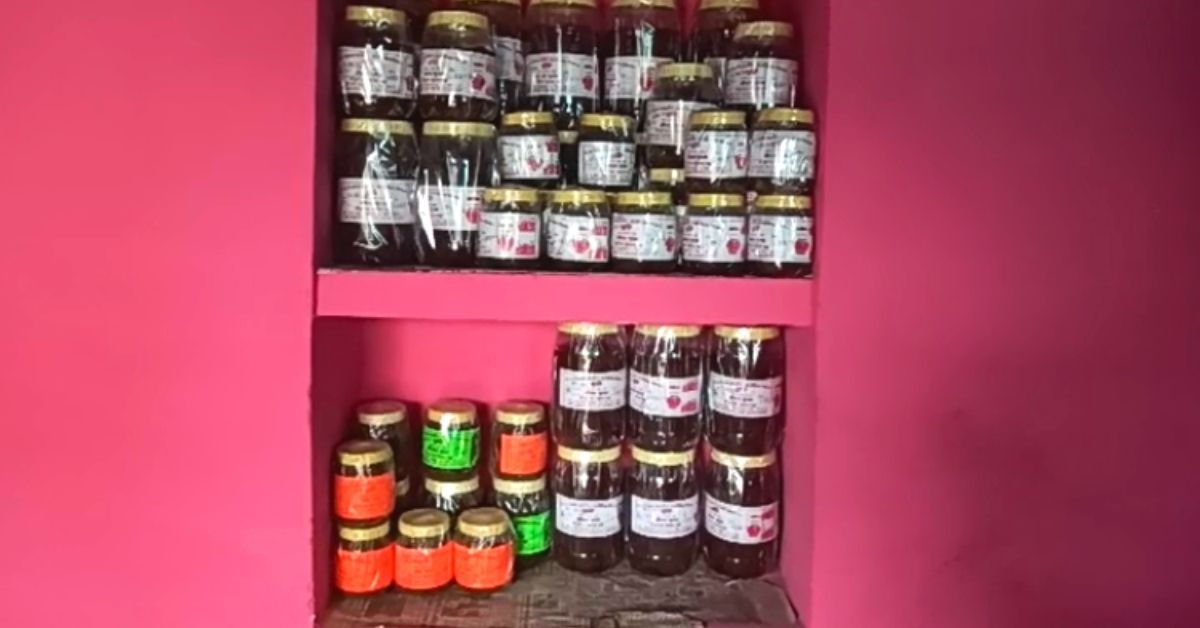
During the pandemic, the demand for Bhagwati’s murabba grew exponentially due to its health benefits. She sold close to 15 quintals in the pandemic alone, which is a laudable feat given that businesses have been suffering.
“Amla has several medicinal properties like boosting immunity, reducing blood sugar levels, providing throat relief and it is good for the hair and heart. A couple of months ago we started delivering pan India and that worked for us. We are selling one kilo of murabba at Rs 150 plus the delivery charges,” adds Bhagwati.
Despite coming from a community that was once predominantly forest-dependent with no education, Bhagwati carved a new path not just for her but several others.
You can place order at 8770050402
Edited by Yoshita Rao
No comments:
Post a Comment